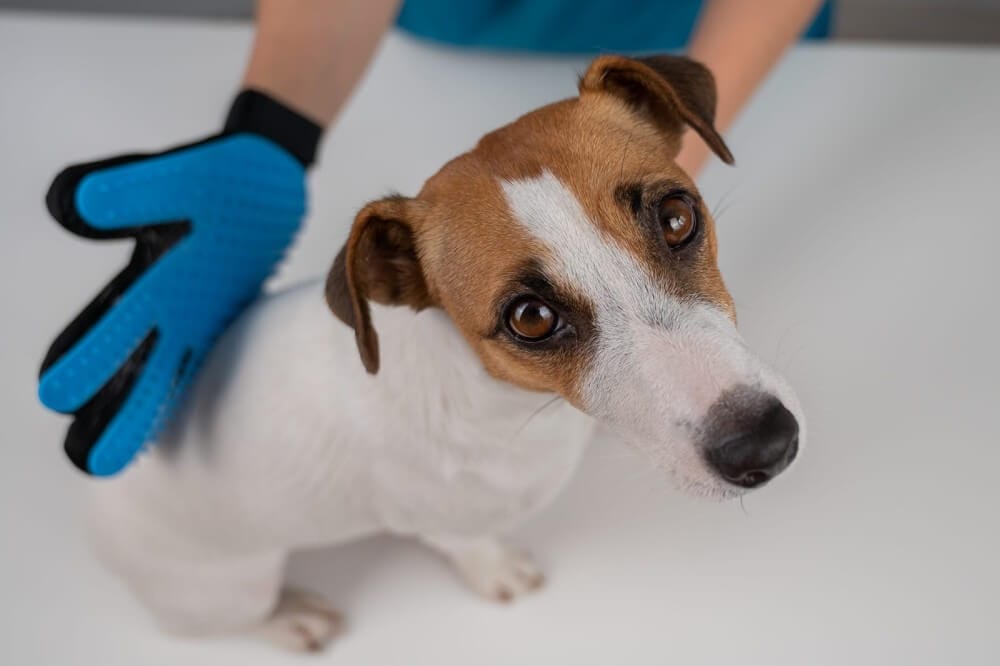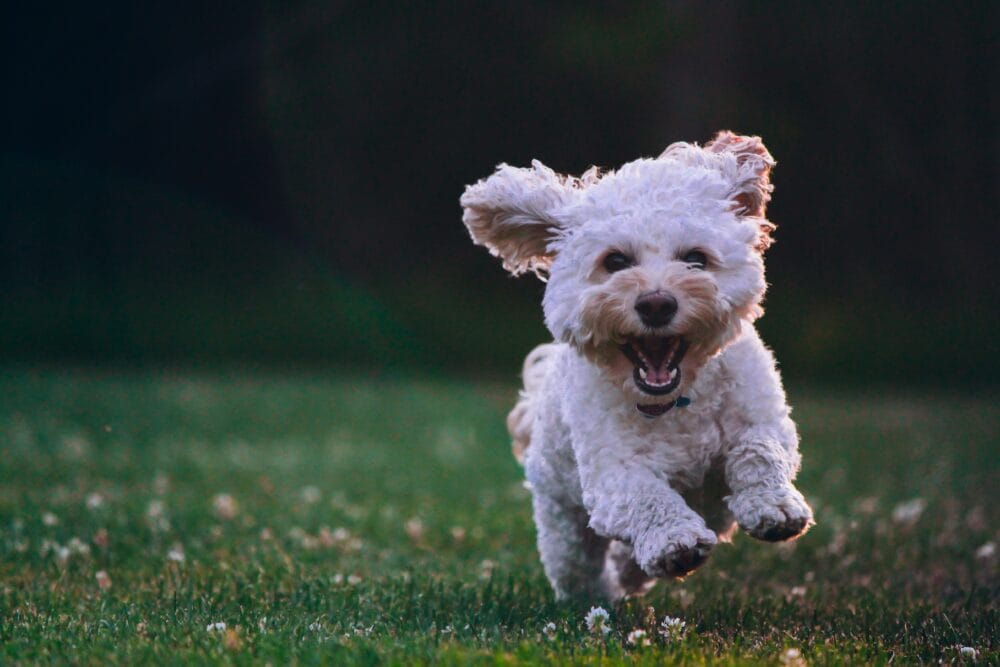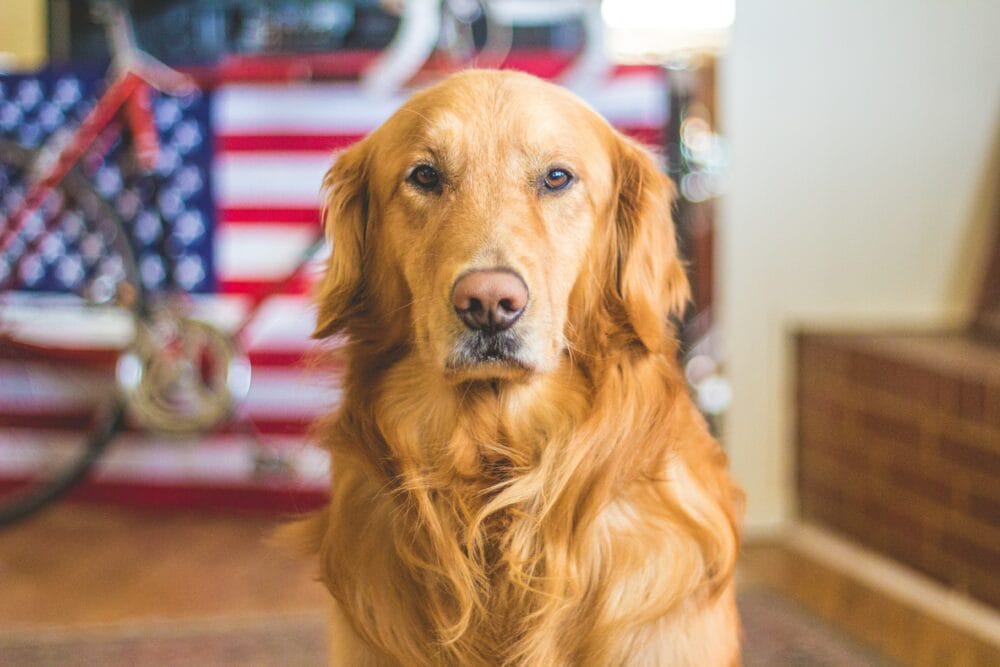If you’re a devoted dog owner, you’re definitely familiar with the occasional…ahem…delicate matter of dog scooting. It’s not exactly a dinner table conversation, but it’s a reality that many pet parents face. Well, you’re in luck because today we’re going to delve into the topic of effective home remedies for dog scooting, offering you some helpful insights and solutions.
In this article, we’ll explore the best home remedies to soothe your furry friend’s discomfort and ease their scooting woes. From herbal remedies to dietary adjustments, we’ll provide you with a comprehensive guide to tackle this pesky problem. So get ready, because we’re about to equip you with the knowledge and expertise to keep your dog’s wagging tail happy and healthy. Let’s jump right in, shall we?
Causes Of Dog Scooting
There can be several reasons why your dog is scooting. Below are the most common reasons for dog scooting to help you identify the cause and treatment:

Anal Gland Problems
One of the most common reasons your dog is scooting is anal gland problems. Dogs have anal glands located on either side of their anus, and these glands produce a scent that is used for marking territory. When the anal glands become blocked or infected, it can cause discomfort and irritation, leading to scooting behavior. Regular expression of the anal glands by a veterinarian or groomer can help prevent this issue.
Allergies And Irritation
Allergies and irritation can also be a reason why your dog is scooting. Dogs can be allergic to certain foods, environmental factors such as pollen or dust mites, or even certain materials like certain types of bedding or cleaning products. When dogs experience allergies or irritation, it can cause them to scoot to try and relieve the discomfort. Identifying and eliminating the allergen or using antihistamines can help alleviate the symptoms.
Infection Or Parasites
Infections or parasites can also be responsible for dog scooting. Dogs can contract infections from bacteria or fungi, which can cause irritation and itching in the anal area. Parasites such as fleas or ticks can also cause itching and discomfort, leading to scooting behavior. Proper hygiene, regular flea and tick prevention, and prompt treatment of any infections can help prevent scooting caused by these issues.
Skin Issues
Skin issues can contribute to dog scooting as well. Dogs can develop skin conditions such as dermatitis, rashes, or hotspots, which can cause itching and discomfort. When dogs experience skin issues, they may resort to scooting to relieve the itching sensation. Regular grooming, keeping the dog’s skin clean and dry, and using natural remedies like oatmeal baths or aloe vera can help alleviate the symptoms and prevent scooting.
Symptoms Of Dog Scooting
Dragging Or Scooting The Rear End
One of the most obvious signs of dog scooting is when they drag or scoot their rear end along the ground. This behavior is often seen as an attempt to alleviate itching or discomfort in the anal area. If you observe your dog frequently dragging or scooting, it may indicate an underlying issue that needs attention.
Redness Or Swelling Near The Anus
Redness or swelling near the anus is another symptom commonly associated with dog scooting. This can be a sign of irritation, infection, or even anal gland issues. It is important to inspect your dog’s anal area regularly to check for any signs of redness or swelling, as it may require medical attention.
Licking Or Biting The Area
Dogs may also exhibit excessive licking or biting around their anal area if they are experiencing discomfort. This behavior can further exacerbate the issue, causing more irritation or even damage to the skin. If you notice your dog constantly licking or biting at their rear end, it is important to address the underlying cause and provide relief.
Foul Smell
A foul smell emanating from your dog’s anal area can also be a warning sign of an issue that may be causing the scooting behavior. A strong, unpleasant odor could indicate anal gland problems, infection, or other complications. It is essential to address this issue promptly to prevent further discomfort or complications.
Visible Discharge
In some cases, you may notice a visible discharge from your dog’s anal area. This can range from a clear or slightly yellowish fluid to a pus-like discharge, depending on the underlying cause. If you observe any discharge, consult your veterinarian for proper diagnosis and treatment.
Best Home Remedies For Anal Gland Problems
Fiber-Rich Diet
A fiber-rich diet can help regulate your dog’s bowel movements and ensure the proper functioning of the anal glands. Foods such as pumpkin, sweet potatoes, and green leafy vegetables are excellent sources of dietary fiber. Consult with your veterinarian to determine the appropriate amount of fiber for your dog’s specific needs.
Regular Expression Of The Anal Glands
Regular expression of the anal glands by a veterinarian or groomer can help prevent anal gland problems and alleviate associated discomfort. This process involves gently squeezing the glands to release any built-up fluid. However, it is crucial to seek professional guidance as improper expression can lead to injury or infection.
Warm Compress
Applying a warm compress to your dog’s anal area can help relieve discomfort and promote healing. Soak a clean cloth or towel in warm water and gently apply it to the affected area for a few minutes. Repeat this process several times a day as needed.
Recommended products for dogs with anal gland problems
- Glandex Anal Gland Soft Chew Treats
- Pet Honesty Scoot Stopper
- Perfect Poop Digestion & General Health Supplement
Home Remedies For Allergies And Irritation

Antihistamines
Antihistamines can help alleviate the symptoms of allergies and reduce itching, which can contribute to scooting behavior. Consult with your veterinarian to determine the appropriate antihistamine and dosage for your dog’s specific condition.
Topical Treatments
There are various over-the-counter topical treatments available that can provide relief from itching and irritation. These treatments often contain soothing ingredients such as aloe vera or hydrocortisone. However, it is essential to consult with your veterinarian before using any new product on your dog’s skin.
Special Diets
In some cases, dietary changes can help manage allergies or food sensitivities that contribute to scooting. Your veterinarian may recommend a hypoallergenic or limited-ingredient diet to identify and eliminate potential allergens. It is vital to follow the guidance of a veterinary professional to ensure a balanced and appropriate diet for your dog.
Keep The Environment Clean
Maintaining a clean and allergen-free environment can help reduce your dog’s exposure to potential irritants. Regularly clean your dog’s bedding, vacuum your home, and minimize the use of harsh cleaning products that can trigger allergies.
Recommended products for dog allergies and irritation
- Allergy Relief Dog Treats with Omega 3
- Velflix Allergy Immune Anti Itch
- Zesty Paws Dog Allergy Relief
Home Remedies For Infection Or Parasites
Apple Cider Vinegar Rinse
A rinse made of diluted apple cider vinegar can help alleviate itching and kill bacteria or fungi that may cause infection. Mix equal parts of apple cider vinegar and water, and gently apply the solution to your dog’s anal area using a clean cloth or cotton ball.
Tea Tree Oil
Tea tree oil has natural antibacterial and antifungal properties that can help combat infection and soothe irritated skin. However, it is crucial to use tea tree oil properly and dilute it before applying it to your dog’s skin. Consult with your veterinarian for guidance on the appropriate dilution ratio and application method.
Coconut Oil
Coconut oil has moisturizing and antimicrobial properties that can help soothe irritated skin and prevent infection. Apply a small amount of coconut oil to your dog’s anal area, ensuring it is properly absorbed. However, avoid using coconut oil if your dog has a known allergy to coconut or if they have been diagnosed with pancreatitis.
Colloidal Silver
Colloidal silver is a natural antimicrobial agent that can help fight bacteria or fungi that cause infection. Apply a small amount of colloidal silver to your dog’s anal area using a clean cloth or cotton ball. Ensure that the product you use is specifically made for pet use and consult with your veterinarian for proper application instructions.
Probiotics
Probiotics can help promote healthy gut flora and strengthen your dog’s immune system. A balanced gut microbiome can help prevent and fight infections. Consult with your veterinarian to find the most appropriate probiotic supplement for your dog’s specific needs.
Recommended products for dog Infection or parasites
- Doggie Dailies Probiotics
- Remedy and Recovery Infection Medication
- Sulfodene Dog Wound Care Ointment
Home Remedies For Skin Issues

Oatmeal Bath
An oatmeal bath can help soothe and moisturize your dog’s skin, relieving itching and discomfort. You can prepare an oatmeal bath by blending rolled oats into a fine powder and mixing it with warm water. Allow your dog to soak in the oatmeal bath for a few minutes, then rinse thoroughly. Repeat this process as needed to provide relief.
Aloe Vera
Aloe vera has cooling and anti-inflammatory properties that can help soothe irritated skin and promote healing. Apply a small amount of pure, organic aloe vera gel to your dog’s affected skin and gently massage it in. Avoid using products that contain additional ingredients such as alcohol or fragrances.
Chamomile Tea Soak
Chamomile tea is known for its calming and anti-inflammatory properties. Brew a cup of chamomile tea, allow it to cool, and then soak a clean cloth or cotton ball in the tea. Gently apply the chamomile-soaked cloth to your dog’s affected skin for a few minutes. Repeat this process as needed to provide relief.
Natural Salves Or Creams
There are various natural salves or creams available that can help alleviate skin issues in dogs. Look for products that contain ingredients such as calendula, witch hazel, or coconut oil, which have soothing and healing properties. Prioritize products that are specifically formulated for pet use and consult with your veterinarian for recommendations.
Recommended products for dog skin problems
Preventive Measures For Dog Scooting
Regular Veterinary Check-Ups
Regular veterinary check-ups are essential for maintaining your dog’s overall health and well-being. Routine examinations can help identify and address any underlying issues that may contribute to scooting behavior. Your veterinarian can also provide advice specific to your dog’s needs and recommend preventative measures.
Proper Hygiene And Grooming
Maintaining proper hygiene and grooming practices are crucial for preventing scooting. Regularly bathe your dog using mild, hypoallergenic shampoos, and ensure their anal area is kept clean and dry. Additionally, regular brushing helps distribute natural oils and reduce the risk of matting or skin issues.
Maintaining A Balanced Diet
Feeding your dog a balanced and nutrient-rich diet plays a significant role in their overall health. Ensure they receive high-quality pet food that meets their specific dietary needs. Consult with your veterinarian to create a balanced diet plan tailored to your dog’s age, size, and any existing health conditions.
Regular Exercise
Regular exercise is vital for maintaining your dog’s physical and mental well-being. Engaging in physical activities helps regulate their digestive system and prevents obesity, which can contribute to anal gland issues. Take your dog for daily walks, engage in playtime, and provide mental stimulation through interactive toys or training sessions.
When To Consult A Veterinarian
Persistent Scooting
If your dog continues to scoot despite trying home remedies or if the scooting becomes more frequent and severe, it is best to consult with a veterinarian. Persistent scooting may indicate an underlying medical condition that requires professional diagnosis and treatment.
Excessive Licking Or Biting
Excessive licking or biting of the anal area can lead to further irritation and potential skin damage. If your dog exhibits this behavior, it is essential to seek veterinary advice. A veterinarian can determine the cause of the excessive licking and provide appropriate treatment to alleviate discomfort.
Visible Signs Of Infection
If you notice visible signs of infection, such as redness, swelling, discharge, or a foul smell, it is crucial to consult with a veterinarian promptly. Infections in the anal area can be painful and may require medical intervention to prevent further complications.
Change In Behavior Or Appetite
A change in your dog’s behavior or appetite can be indicative of an underlying health issue. If your dog experiences these changes alongside scooting behavior, it is advisable to seek veterinary care. A veterinarian can conduct a thorough examination and run diagnostic tests to determine the cause of the changes and recommend appropriate treatment.
Conclusion
Dog scooting can be a bothersome issue, but there are various home remedies that can provide relief and address the underlying causes. Promote your dog’s overall health and immunity by maintaining a balanced diet, regular exercise, and appropriate hygiene practices. Additionally, regularly monitoring and addressing any underlying medical conditions can help prevent scooting. While natural remedies can be effective, it is essential to consult with your veterinarian to ensure proper diagnosis and treatment for your furry friend’s specific needs. By taking these preventative measures and seeking veterinary guidance, you can help keep your dog comfortable and healthy, minimizing the occurrence of scooting behavior.
Frequently Asked Questions: Dog Scooting
1. Why is my dog scooting?
There are several possible reasons why your dog may be scooting. One common cause is anal gland irritation or blockage. Other possible causes include allergies, itchy rear end, or discomfort around the anus.
2. Are there any home remedies for dog scooting?
Yes, there are several effective home remedies you can try to help relieve your dog’s scooting. Some of the best home remedies include giving your dog a proper diet, regular anal gland expression, and using natural remedies such as soothing dog shampoos.
3. How can I stop my dog from scooting across the floor?
To stop your dog from scooting across the floor, it is important to address the underlying cause. If your dog is scooting due to anal gland issues, you may need to seek veterinary assistance to have the glands expressed. Additionally, you can try implementing a proper diet and providing home remedies to alleviate any discomfort.
4. Can food allergies lead to scooting in dogs?
Yes, food allergies can contribute to scooting in dogs. If your dog has a food allergy, it can cause irritation and itching around the anus, leading to scooting behavior. It is important to identify any food allergies and adjust your dog’s diet accordingly.
5. Is scooting across the floor normal for dogs?
No, scooting across the floor is not considered normal behavior for dogs. It is often a sign of discomfort or irritation. If you notice your dog scooting frequently, it is best to consult with a veterinarian to determine the underlying cause.
6. How do I help my dog express its anal glands at home?
If you want to help your dog express its anal glands at home, it is recommended to consult with a veterinarian or a professional groomer. They can provide guidance and teach you the proper technique to express the anal glands safely and effectively.
7. What are some simple home remedies for dog scooting?
Simple home remedies for dog scooting include regular cleaning of the anal area, providing a balanced diet with sufficient fiber, and using soothing natural remedies such as aloe vera or witch hazel. However, if your dog’s scooting persists or worsens, it is best to seek veterinary advice.
8. What is the most common cause of scooting in dogs?
The most common cause of scooting in dogs is anal gland issues. When the anal glands are not expressing properly, they can become irritated or infected, leading to discomfort and scooting behavior.